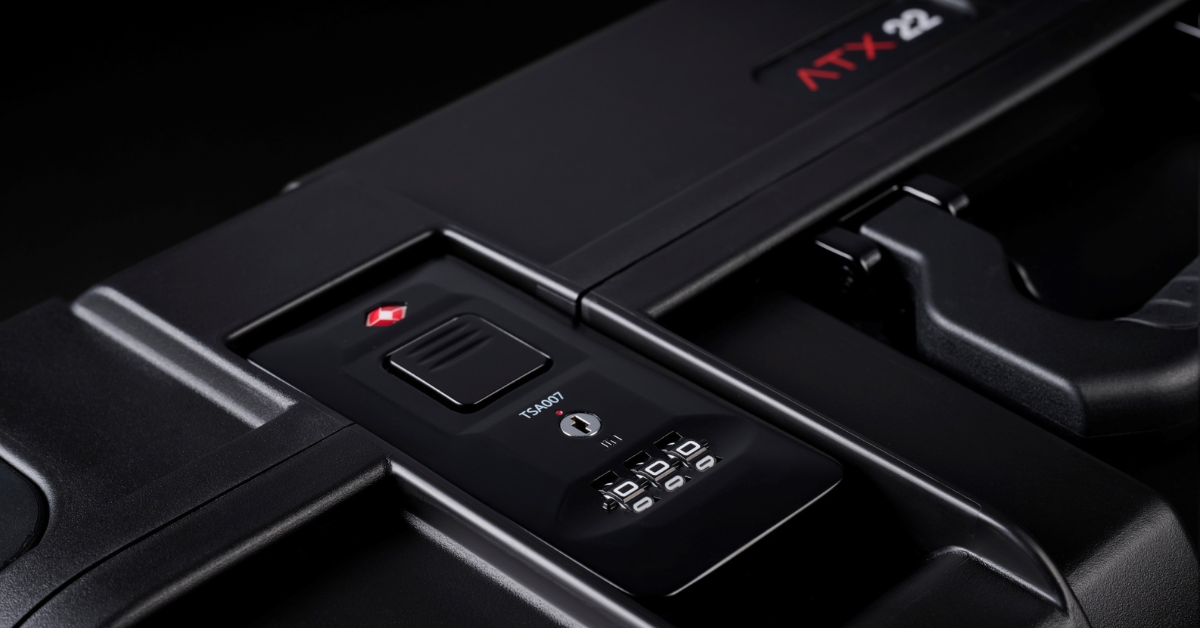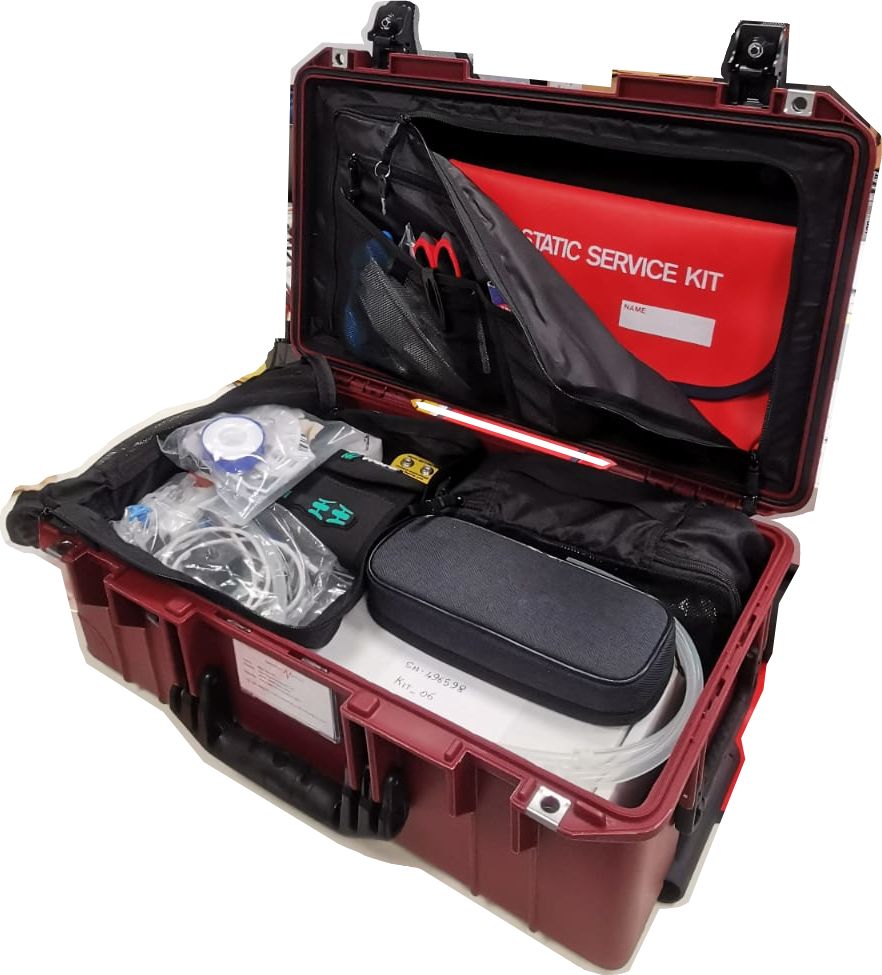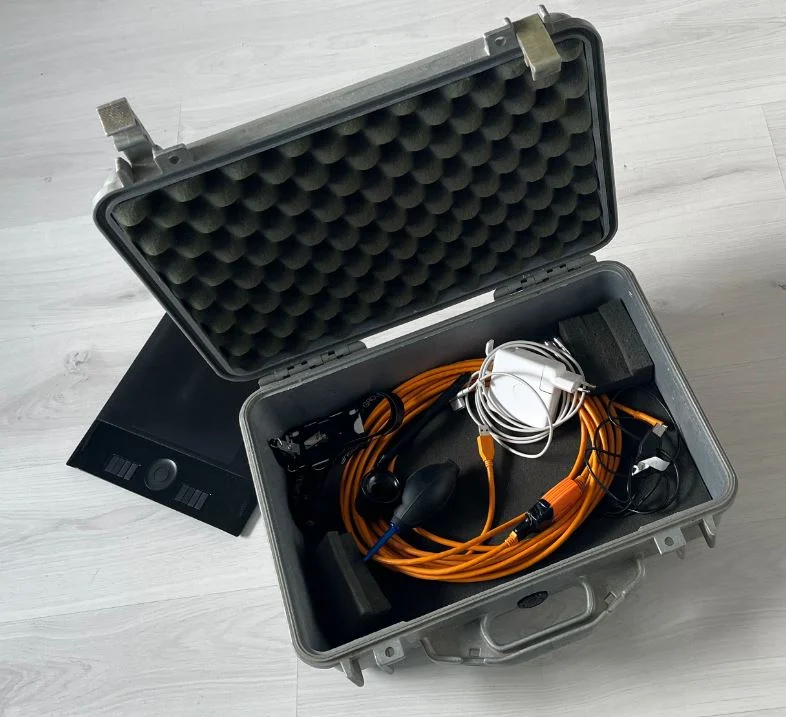When travelling abroad with a travel case, it’s essential to keep your belongings safe. According to government data, almost 400,000 UK passports are reported lost or stolen each year, and your passport is perhaps one of the most important items you’ll need to safeguard when travelling. That said, it is just one of many items; Your luggage itself, money, and other various and sundry travel items are also at risk of loss or theft.
Whether you’re staying in a luxury hotel or a hostel, anyone can fall prey to theft or loss. Be better prepared for your next trip with our top tips on how to keep your travel case and belongings safe while travelling.
Use a secure travel case
Many hotels (and some hostels) offer room safes where you can securely store valuable items. These in-room safe deposit boxes are secured with an electronic code as standard; if your hotel room has a safe, use it to stash your valuables when you head out for the day. This way, if someone breaks into your room, all your valuables will be safe.
Passports, any cash you don’t need, any jewellery you’re not wearing and any electronic devices you don’t need with you should all go in here. If your hotel has no in-room safe, ask the front desk if they can hold your travel case or valuables in a locked drawer.
Bring a padlock
Most thieves are opportunistic and prefer easy targets. Even a small padlock could deter them from choosing your travel case. If you’re staying in hostels, they usually provide lockers for storing your belongings overnight and when you’re out, but you’ll need to bring a good quality padlock to secure them. Remember not to let your guard down, even around friendly dorm mates.
Secure padlocks can be very useful for various purposes during your travel. For example, you may want to lock your travel case to luggage racks on long train journeys or lock your valuables in safety deposit lockers if your hotel doesn’t have an in-room safe. In some parts of South Asia, it’s also common to lock your hotel room. For these situations, it’s recommended to bring your own padlocks. Opt for a combination lock to avoid the added stress of keeping a key safe. If you’re carrying a laptop, you may also want to consider investing in a cable lock to keep it secure in public areas.
Too keep thieves out of your luggage, you can also invest in a smaller padlock to keep your travel case secure. A TSA lock from Peli is even better as it allows airport security to open the case if necessary while also keeping it secure from would be thieves
Keep your belongings safe at the beach
The best way to keep a travel case and its belongings safe at the beach is to not bring them with you. Leave expensive gadgets, jewellery, and watches in a secure place at your accommodation. Sand and saltwater generally don’t mix well with said items, anyway. All you need to enjoy the beach is some sunscreen, a towel and a good book.
That said, if you can’t leave your valuables behind, use a waterproof travel case or pouch to keep them safe from water damage. But make sure you don’t let them out of your sight.
Peli Ruck or Micro Cases are great smaller-sized waterproof cases that you can use to take with you to the beach to protect smaller personal items. With their minimum IP67 water and dustproof rating, they will keep water and sand out, making sure your valuables, such as keys, wallets, cards, phones and passports are not damaged.
If you are at the beach alone and you’d like to take a nice dip in the water without having to worry about your items being stolen, a great tip we’d like to pass on is to place your items in your Peli case and bury it in the sand before heading to the water. Once you return, you should be able to dig up the case, and of course, find that all the items are water and sand free.
Stay secure on the move
If you’re on public transport, keep your expensive belongings with you and don’t leave them unattended or on the floor. If you’re travelling for an extended period and have a tendency to fall asleep in public, wrap your travel case around your arm or leg, put it under you, or use it as a pillow so that nobody can mess with it without waking you up.
When travelling, it’s recommended to keep your cash, cards, and important documents such as passport or driving license close to you. You can use a pouch or a money belt worn inside your clothes or opt for an inside jacket pocket instead of the back pocket of your jeans. Be aware of any holes in your pockets where your passport can slip through. As ridiculous as this may seem, pockets can develop holes due to wear and tear, and an item slipping through is not completely unrealistic.
Cross-body purses or money belts are a practical way to keep your money, credit cards, and passport safe while travelling abroad. For women, there are also bras with pockets specifically designed to stash money.
Be cautious with backpacks
Waiting in long queues to check-in or buy train tickets can attract opportunistic thieves, who may take advantage of bored and distracted individuals. To prevent theft, it is important to keep your travel case and belongings close to you and your bags securely zipped shut. Additionally, it is recommended to remain alert and vigilant while waiting in line. If you notice anyone loitering without a clear reason, it is advised to report them to staff or the authorities to ensure the safety of yourself and others around you.
Consider wearing your backpack in front of you to increase safety. It’s also important to be careful when walking with a shoulder bag in some areas, as thieves on mopeds or scooters have been known to snatch bags while driving past. If you carry your valuables in a handbag, avoid walking in the same direction as traffic and keep a firm grip on your bag. Back pockets are also an easy target, so it’s best to store valuable items in your front pockets.
Divide your belongings
A useful tip to minimise loss in case of missing bags is to divide important and valuable items among multiple bags. This way, if one travel case goes missing, you won’t lose all of your possessions at once.
If you are travelling in a group, distributing your belongings between travelling cases is a good idea to minimise the impact of lost luggage. For example, putting a change of clothes for each person on the trip in each case could be useful if one of the cases goes missing. That way, everyone will have a change of clothes. If you are travelling alone, keep all valuables in your carry-on, but also consider keeping a backup credit card and some cash in your main luggage in case your wallet or purse is stolen.
Make copies of important documents
If an important item goes missing, having a photocopy, scan, or even a photograph of it on your phone can make replacing it much easier. For instance, taking a picture of your passport, visa, driving license, or medical card can ensure that you have the necessary information on hand to report the loss promptly. It’s also a good idea to have a photocopy of your passport in your luggage and leave a copy with your emergency contact back at home. While a photocopy cannot be used in place of your real passport, it can make it easier to get a replacement. Check if a photocopy or other form of ID will suffice in the countries you are visiting.
Back up your gadgets
Back up your photos and documents on your phone, tablet, and other devices and upload them to the cloud. Avoid leaving your phone or other devices unattended and keep them on your person or in a secure travel case or pocket. Turn on password protection or biometric locks to keep your personal information safe. Consider installing a “find my phone” app and learn how to remotely wipe all data on your smartphone.
Beware of local scams
Before travelling to a new destination, it is advisable to seek local advice either online or in guidebooks to learn about any known scams or safety concerns in the area. Keep an eye out for pickpockets working in pairs, where one person distracts you while the other steals from your pockets. Also, be cautious of individuals posing as beggars, concealing their hands under a cloth or jacket.
Research common scams in the areas you are visiting to avoid falling victim. Check guidebooks and online resources for tips and advice and be careful where you go. Guidebooks can warn you about any dangerous neighbourhoods you should avoid.
Get travel insurance
Travel insurance can help soften the blow if your belongings are lost or stolen. Make sure to read your policy carefully and check what is covered, as most policies will not cover the theft of belongings left unattended. If you have a pre-existing medical condition, your travel insurance may be more expensive, but it’s important to be honest with your insurance provider to avoid having any claims rejected.
Peli Products is the world leader in the manufacture of high-performance heavy-duty waterproof, dustproof and impact-resistant cases. To find out more about our line of cases, you can contact us or have a look at our full catalogue of travel cases available for purchase online.






